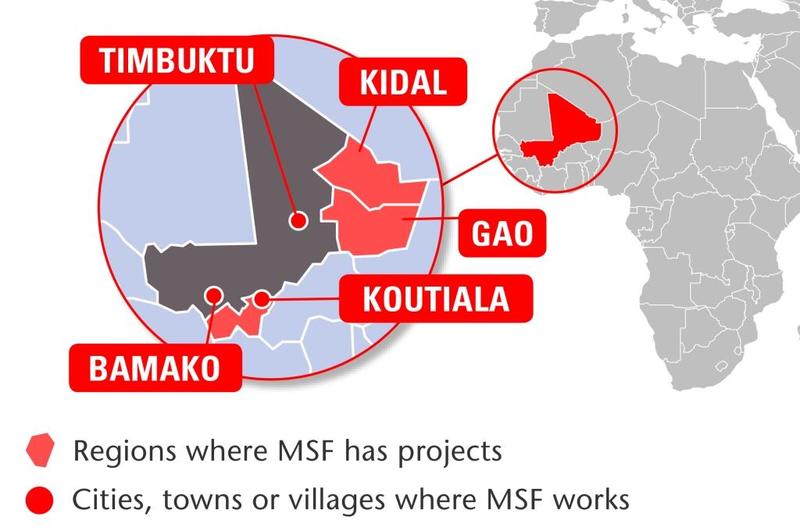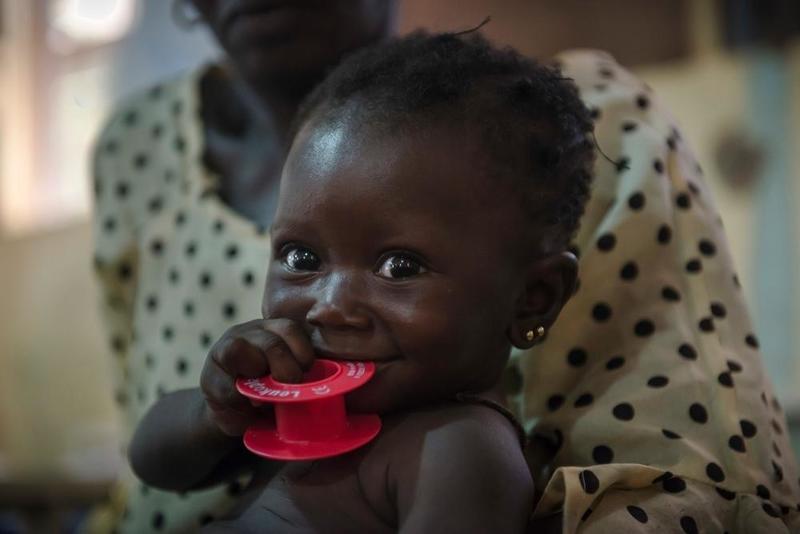Home to roughly 17 million people, the West African country of Mali is the ancient heartland of an African empire.

The capital, Bamako, is said to be one of the fastest growing cities in Africa and the country is renowned worldwide for producing stars of African music, most notably Salif Keita and Ali Farka Touré.
Mali was regarded as a model of African democracy until the military seized power in March 2012 and the north fell under al-Qaeda control.
The chaos that ensued after the coup led hundreds of thousands of northern Malians to flee their homes – creating food shortages in the south.
Mali has since returned to democracy, but the effects of 2012’s instability are still being felt.
Médecins Sans Frontières/Doctors Without Borders (MSF) first began working in Mali in 1992 and is currently helping to fill healthcare gaps, by treating conditions such as malaria, malnutrition and chronic diseases.
[[Country-Facts]]
MSF’s work in Mali: 2015
Despite the peace agreement reached between the government and the main armed groups in northern Mali in June, the security situation remained volatile for the rest of 2015.
Clashes between armed groups impeded humanitarian access, and the lack of medical supplies and qualified personnel meant that people were left with little or no basic healthcare.
There were deadly security incidents in the south, notably an attack by Islamic militants on a restaurant in March and an attack on a luxury hotel in November, both in Bamako.
Medical care in Gao
In Gao region, MSF continued to support the hospital in Ansongo district, where a team manages outpatient services, admissions, maternal health, nutrition, surgery and the laboratory.
In September, a special project was launched to meet the basic medical needs of both pregnant women and children under the age of five among the seasonal pastoralist population in the region. In addition, more than 46,000 children under-five received antimalarial treatment during the seasonal peak between August and November to guard against the disease.

Healthcare in Timbuktu and the surrounding area
In Timbuktu, MSF supported the 86-bed regional hospital, focusing on medical and surgical emergencies.
There were an average of 390 inpatient admissions and 80 assisted deliveries every month.
Teams also provided consultations for patients with chronic diseases, such as diabetes and hypertension, at the referral health facility.
Southern Mali
The main cause of child mortality in the relatively peaceful south of the country is malaria. In 2015, MSF continued to focus on child health and severe acute malnutrition in Koutiala, Sikasso region.
MSF supports the paediatric unit within the Koutiala referral health facility and five health centres in Koutiala district. MSF increased the number of beds to 300 in the paediatric unit during the seasonal malaria peak.
Find out more in our 2015 International Activity Report



